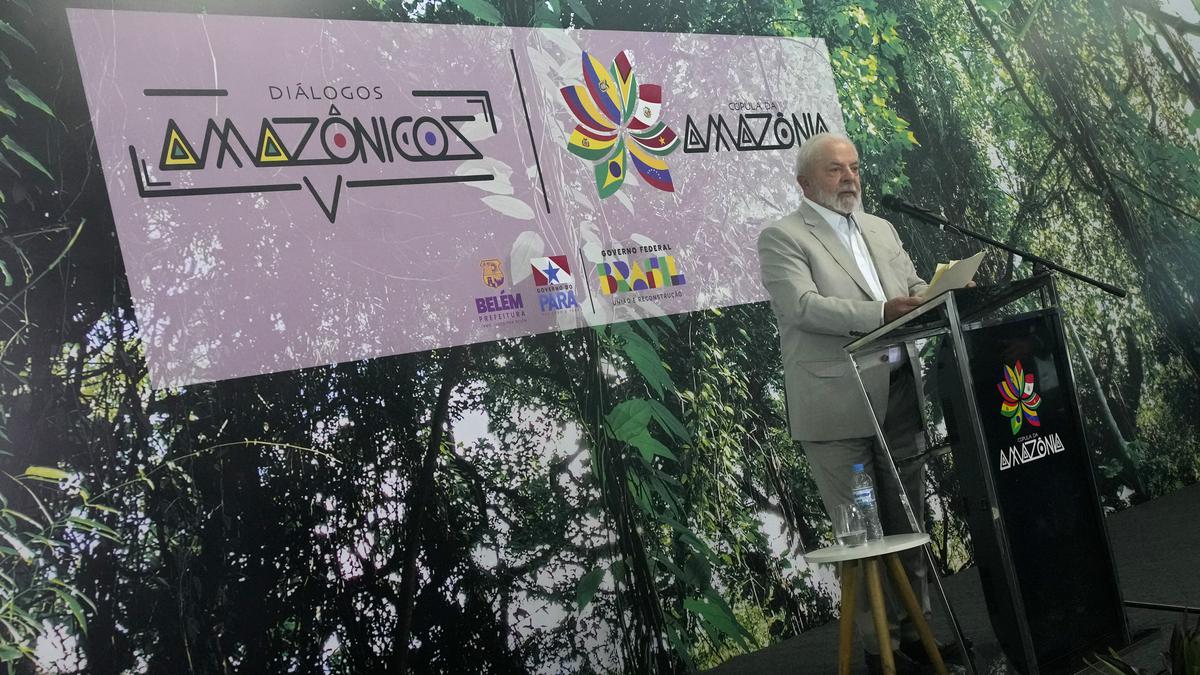
Brazil's Amazon Summit ends with a plan to protect the world's rainforests, but no measurable goals
The Hindu
Amazon Summit ends with roadmap to protect rainforest, but lacking concrete commitments. Leaders from 8 nations sign declaration to drive economic dev't while preventing Amazon's demise.
Brazil’s Amazon Summit closed on August 9 with a roadmap to protect tropical rainforests that was welcomed as an important step in countering climate change, but without the concrete commitments sought by some environmentalists to end deforestation.
Leaders and Ministers from eight Amazon nations signed a declaration on August 8 in Belem, Brazil, that laid out plans to drive economic development in their countries while preventing the Amazon’s ongoing demise “from reaching a point of no return.”
Several environmental groups described the declaration as a compilation of good intentions with little in the way of measurable goals and timeframes. However, it was lauded by others, and the Amazon’s umbrella organisation of Indigenous groups celebrated the inclusion of two of its main demands.
“It is significant that the leaders of the countries of the region have listened to the science and understood the call of society: the Amazon is in danger, and we do not have much time to act,” the international group WWF said in a statement. “However, WWF regrets that the eight Amazonian countries, as one front, have not reached a common point to end deforestation in the region."
Joining the summit on August 9 were the Presidents of the Republic of Congo and the Democratic Republic of Congo, an emissary from Indonesia’s President, and France’s Ambassador to Brazil, representing the Amazonian territory of French Guiana. An emissary of Norway, the largest contributor to Brazil’s Amazon Fund for sustainable development, also attended.
The national representatives on August 9 signed a similar, but much slimmer, agreement to that of their counterparts the prior day; it likewise contained no concrete goals and mostly reinforced criticism of developed nations for failure to provide promised vast climate financing.
The eight nations attending on Tuesday — Bolivia, Brazil, Colombia, Ecuador, Guyana, Peru, Suriname, and Venezuela — are members of the newly revived Amazon Cooperation Treaty Organization, or ACTO, who hope that a united front will give them a major voice in global environment talks ahead of the COP 28 climate conference in November.

LGBTQ+ couples in Thailand register their marriages on the first day of law giving them equal status
Thailand legalizes same-sex marriage, granting LGBTQ+ couples equal rights and recognition, marking a historic milestone in Asia.

















